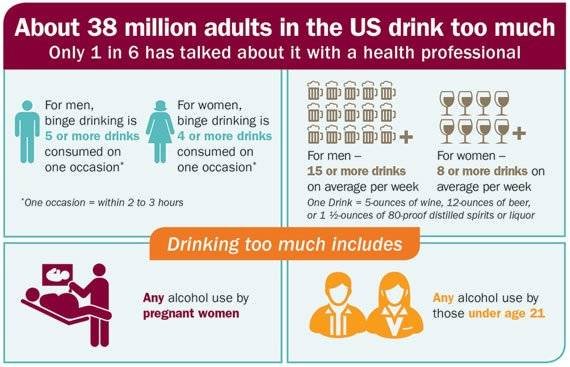Alcoholism is often marked by behavioral symptoms such as withdrawal from friends and family to dangerous activity like drinking and driving.
Symptoms of Alcohol Abuse
Alcohol can quickly “snowball” or spiral out of control.
Here are some “red flags” indicating you might have a problem with alcohol:
- Are friends and family suggesting there is a problem?
- Is alcohol having a negative effect on your work performance or health?
- Do you need alcohol to get through the day?
The above questions might apply to you at times or not at all. Do the following symptoms of alcohol abuse register?
- Drinking alone, isolating, and showing distance from friends and family
- Drinking to “feel normal,” relax or deal with stress
- Demonstrating mood swings and increased irritability
- Drinking leading to blackouts or short-term memory loss
- Choosing drinking over responsibilities and obligations
- Drinking with a “new crew” over your former friends and acquaintances
If any of these red flags seems like they could apply, you might be struggling with alcoholism or have an Alcohol Use Disorder (AUD). If you would like help or just more information on alcohol, please contact us.
Diagnostic Tools
Do you look in the mirror and wonder whether you have a problem with alcohol? You might need a more detailed diagnostic protocol to probe a potential problem.
There are tools like the CAGE questionnaire that can help you diagnose potential AUD. If you respond “yes” to two or more of the following questions, then you should seek help:
- Have you ever felt you should cut down on your drinking?
- Have people annoyed you by criticizing your drinking?
- Have you ever felt bad or guilty about your drinking?
- Have you ever felt you needed a drink first thing in the morning to steady your nerves or to get rid of a hangover?
Another tool you can consult yourself or under the guidance of a medical professional is the Diagnostic and Statistical Manual of Mental Disorders (DSM). This mental health diagnostic guide examines AUD and asks questions to probe potential problems.
When considering some of the following questions, you should consider your alcohol use in the past year:
- Have you been in trouble with the law due to alcohol-related problems?
- Have you gotten into situations while drinking that increased your chances of harming yourself and others (e.g. drinking and driving)?
- Have you felt an urge or craving to consume alcohol?
- Have you experienced symptoms associated with an alcohol withdrawal?
- Have you been in a situation where you ended up drinking much more than you intended?
- Have you continued to drink even though it was making you feel depressed or anxious or adding to another health problem?
Take QuitAlcohol.com’s Alcoholism Quiz Here
Alcohol Abuse Statistics
With all these tools, tests, and questions, you might grow exasperated. Surely, you reason, everyone drinks around me. Every time you go online or engage with the media, you see alcohol-related ads or content. It is everywhere!
Some recent governmental data affirms this belief. In one section, the 2015 National Survey on Drug Use and Health (NSDUH) by SAMHSA studies alcohol use in the United States. At the time of the study, there were 138.3 million alcohol users in the U.S., 66.7 million (46.2% of all drinkers) were characterized as binge drinkers. Binge drinking for men was defined as consuming five or more drinks on the same occasion on at least one day in the past 30 days. For women, binge drinking was defined as drinking four more drinks on the same occasion on at least one days in the past 30 days.
Of the 138.3 million drinkers, 17.3 million were heavy drinkers in the NSDUH. Heavy alcohol use was defined as binge drinking on 5 or more days in the past 30 days for men or women. Heavy drinkers reflect 26.0% of bingers and 12.5% of all users.

If you feel you may have a problem with alcohol, the recent NSDUH confirms that you are not alone.
Seeking Help for Alcoholism
The NSDUH data suggests there are many people suffering with alcoholism. If the diagnostic tools and symptoms described in this article register as red flags, you can find treatment in a specialized treatment facility where you can ease the withdrawal symptoms thru detox in a rehab facility.
Following treatment, a recovery program is suggested where trained specialists can organize a program of steps and goals to maintain your sobriety. Often, low-cost recovery groups like Alcoholics Anonymous and Al-Anon will help a recovering alcoholic continue their path of recovery.











